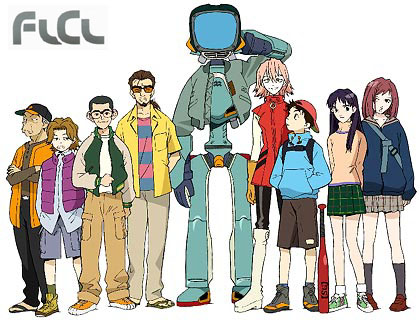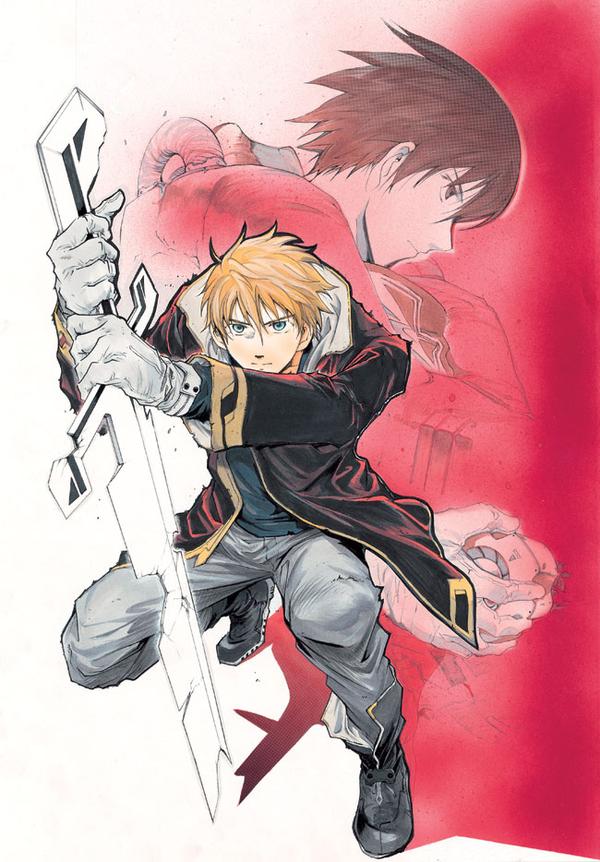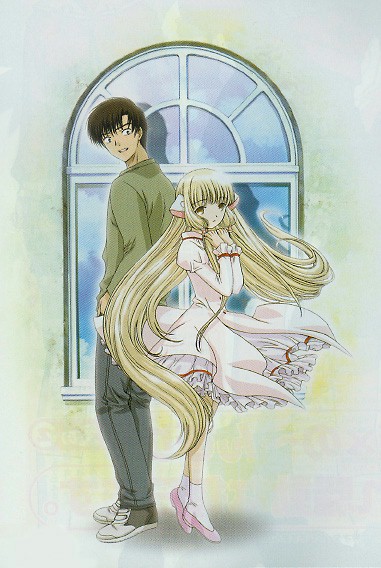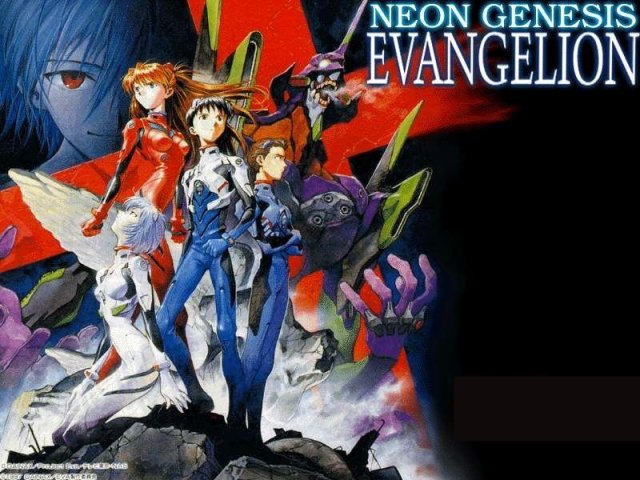TURNING JAPANESE: A STARTER GUIDE TO (ROBOT) MANGA
In the United States, the "reign" of comics has come and gone. Even though these days comics are infiltrating pop culture and movies, reading them is still considered a very niche hobby/passion, one that is sometimes stereotyped or made fun of as "geeky". Imagine if that WASN'T the case; imagine that at bookstores it was completely normal for at least half the shelfspace to be taken up by graphic novels. Imagine going on the train and not being shocked by seeing an older lady or a business man reading comics. Imagine comics infiltrating advertising campaigns, from billboards to commercials. Basically, imagine comics had the same power in America as manga does in Japan.
Being in my twenties and growing up as a total social reject girl-nerd, I was the perfect target audience for manga when it started to become popular in the United States. As a lifelong comics reader, I never questioned the validity of manga and read it quite religiously through my teen years. However, I've come to find that manga doesn't seem as accessible to some people. At this point in time there is a definite overload of titles available… and I would guess that only about 40% of it is any good. There are plenty of fluffy "shoujo" titles (manga for girls), and strange, predictable series with boring plotlines. But amidst the shelves at your local Border's Books, if you're willing to elbow your way through piles of mall goths, there are many manga gems to be read. And manga has its own unique brand of art and storytelling, so it's not as if you're being "disloyal" to American comics.
Manga first became popular in Japan around World War II, mainly popularized by Astro Boy. Now it is an accepted part of life – I studied abroad in Japan and I could get manga ANYWHERE, from a cafe to a gas station. Manga-ka (that is, manga artists) are basically on the same tier as celebrities, and they are managed by studios that employ people just for inking, lettering, etc. It's a very efficient market, and one that has made the Japanese publishing industry about 3.6 billion dollars before 2007.
BECAUSE there is such a broad market for manga, there is something to be found for EVERYONE. From children's stories to "soap opera" types of manga to adults only (hentai), manga covers a broad spectrum of every sort of entertainment… for every taste. So in the coming weeks I will introduce you readers to "starter" manga for different genres.
Robots are awesome. I know it, you know it, and Japan ESPECIALLY knows it. Their obsession with robots is prominent: from their movies, advancement in toys and AI technology, to most things within their popular culture. Of course, manga is not an exception to this, as manga and anime show some of the most prominent robot and mecha in Japan today. It's such an expansive genre that I couldn't just lump it in with "sci fi"; oh no, mecha manga is a being in and of itself. If you're in the mood for giant robotic suits with advanced weapons technology (like Iron Man, but usually WAY bigger), robot girls who have the same feeling as humans, and strong character driven storylines with robots in the background, look no further than the following titles.

FLCL (Furi Kuri) by Yōji Enokido and Ueda Hajime
I'm about to make a very bold statement. Are you ready? I think FLCL is one of the best manga/anime OF ALL TIME. I know, shock gasp etc. But it is one of the most entertaining series I have ever come across. The writing is bizarre but suburb, the art is atypical and interesting, and the characters are so far from the ordinary they are almost impossible to assign cliches to. The anime itself is incredibly confusing (a lot is lost in translation, and it is only six episodes long so a fair amount has been cut out), so the manga really shines where the anime could not. The art is a little crazy and may not be for everyone (if you're looking for the "normal" style of manga, don't pick up FLCL), but I found the differences in it refreshing. Although the storyline is still a little ridiculous and slightly difficult to follow (in a good way), it is still honestly one of the best stories I have ever indulged in.
Here is the long and short of it: The story is based around a shy, unexceptional high school boy named Naota. He encounters an absolutely bonkers alien woman named Haruko Haruhara, who makes a flashy entry by running Naota over with her vespa and hitting him over the head with her bass guitar. Something about that encounter makes suddenly causses giant robots to grow out of Naota's head and makes him start battling bad guys. And Haruko appears as a live in maid in his household. Amidst all of this chaos there is Mamimi Samejima, a bizarre girl who is Naota's brother's ex girlfriend. She's totally aloof throughout the series, has a habit of lighting things on fire, and adopts stray animals and names them all "Ta-kun".
The entire series is short and sweet, but has such an impact that I will recommend it to anyone for years to come.

Broken Blade by Yunosuke Yoshinaga
Broken Blade is not only a manga about giant robots, it is also a manga about war and the way if affects people. It is incredibly compelling in some regards, but it is peppered with light humor and slice of life stories. It's set in an alternate world where fossil fuel is non existant, and instead humans are born with an ability to control a special form of gemstone that allows for energy. The main character in this series is named Rygart Arrow, and he seems to be plagued by bad luck. Why? Because he was not born with this ability, which is an extremely rare anomyly. He is constantly harassed and shunned for his lack of normality, but he has an incredibly supportive family that sends him to military school in a last ditch effort for him to do some good in the world. By pure chance, he befriends the future king and queen in the academy. Though he becomes a farmer later in life, he is suddenly confronted with choices that could turn his friends against each other and change the outcome of an unjust war.
Rygart discovers a mecha suit that only he can control, which is where the robot angle comes in for this manga. Broken Blade also contains a lot of stark reality and observations on what killing other humans can do to a man. It is a study on war and society as much as it is about giant mecha suits, which caught me totally off guard when I picked it up. Broken Blade does not disappoint.

Chobits by CLAMP
In my description above, I offered up hot robot chicks… and I promise I am not about to disappoint. Chobitsis probably one of the best manga I have ever read about a hapless boy who falls in love with the "perfect" girl. It is rife with sexual tension and undertones, but they are done in a tasteful and relateable way. It is written by the most exceptional all women manga team ever, CLAMP, and as usual the storyline is up to par with their typical quality. It's based around the life of 20 year old slacker Hideki, a dude who is working a crappy job to make ends meet and who kind of despises his life. He is surrounded by friends who are more tech savvy and successful than him, who all possess a supercomputer called a "persocom" (a play on the words "personal computer"). These computers can not only do everything, they are also modeled in the likeness of humans and have nearly tangible artificial intelligence.
They come in all shapes and sizes, but persocoms have taken Japan by storm. They offer companionship and functionality, the equivalent to walking, talking Real Dolls. Hideki is desperate for one, but they are incredibly expensive, and due to the fact he is working a dead end job there's no way he could ever afford one. Then, one day on his way home from work, he finds a body dumped behind his apartment complex in the alleyway. After his intial shock, he realizes the "body" is a persocom, one like he's never seen before. She is exceptionally beautiful (of course), but once he brings her home and turns her on he realizes she is not like other persocoms. For starters, she can only say one word: "chii" (which she is dubbed), fries any computer he plugs her into, and she seems to be able to LEARN. As the series progresses, he begins to try and unravel the mystery that is Chii, which puts him on the run from the evil corporation that created her. And of course he ultimately falls in love with the robot girl.

Neon Genesis Evangelion by Yoshiyuki Sadamoto
I tried really hard to leave Evangelion off this list, I really did. But if I'm making a list of who's who in big honkin' robot manga, it seems to be an injustice to not include Evangelion. It may be the most well known mecha manga/anime out there (save Gundam Wing), and it carries such a weight for a reason. I know so many people who don't like anime or manga but are crazy about Evangelion due to the brilliance of the storyline and the relatibilty of the characters. But if you are one of the few people who has never experienced Evangelion, allow me to enlighten you.
Set in the near future of 2015, Tokyo-3 is suddenly attacked by giant robot monsters called ANGELS, that have appeared after the ice caps melted. Humanity's only hope are giant robot mecha suits to combat the ANGELS, the Evangelion… which just so happen to be piloted by fourteen year old teenagers. Though the manga itself has a lot of scenes with the mecha, it is primarily based around the nuances of human interaction, the awkwardness of that particular age range, the angst of being a teenager, and the lengths humans will go to to save themselves and their race. It is a poignant and beautiful read, one that I find myself going back to over and over.
Above are four very excellent examples of mecha/robot manga for you to delve into. As long as you don't dress up in cardboard boxes and record yourself beating up the neighbor kids for YouTube, I condone reading of all these manga.
http://ifanboy.com/articles/turning-japanese-a-starter-guide-to-robot-manga/
No comments:
Post a Comment